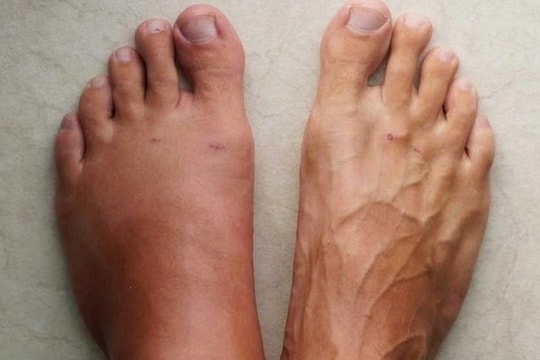Is chewing gum too much bad for your jaw?
Most of us chew every day, whether it's a granola bar between meetings or chicken nuggets at mealtime. So does chewing gum regularly help train your jaw muscles?
According toEating Well, not only do your arms, legs and abs need exercise, you have essential body parts in your head and neck that need regular movement as well.
In fact, there's some pretty compelling research showing impressive benefits to exercising your head and neck muscles through chewing, from helping you feel fuller for longer to improving cognitive function and potentially protecting you from neurodegenerative diseases that cause cognitive decline, like Alzheimer's.
Kitchen appliances from blenders, juicers, food processors, graters to even the heat from the stove can help crush food, so your jaw muscles don't have much work to do.
Modern diets have become more refined, and even diets that include whole foods have become more processed. Whole carrots, shredded carrots, and cooked carrots are all whole, but they are not the same thing.
They may have the same nutritional value, but each requires different jaw movements. Whole carrots require a strong bite and tear, shredded carrots have been mashed in a blender and require less chewing, and cooked carrots require just a little mashing to make them easier to swallow.
When you chew food, you use many parts of your body, including your tongue, teeth, jaw, skull, and muscles. And did you know that two of the strongest muscles in your body are the ones that move your jaw, called the masticatory muscles? These muscles are relatively small, but they can exert the most pressure of all the skeletal muscles.

Chewing gum too much can be bad for your jaw muscles. Photo: Nbcnews
The link between chewing and brain health
The forces created when you chew play a role in how your body functions. Chewing, tearing, and swallowing stimulate the muscles of your face and throat and help develop optimal anatomy and function of your jaw, vocal cords… and even your brain.
According to a 2017 paper published in the International Journal of Molecular Sciences, chewing helps protect the part of your brain (the hippocampus) that processes memory and other cognitive functions by increasing blood flow to the brain. While the exact reason is unclear, chewing has long been studied as a stress-relieving behavior.
Additionally, the force created when you bite increases neuronal activity in the brain, according to a 2019 review article in the International Journal of Dentistry.
Your chewing muscles are probably working the equivalent of sitting in a chair all day, so make sure you don't miss out on other opportunities to feed your brain while you eat.
Is chewing gum too much bad for your jaw?
According toCleveland ClinicJaw movement occurs at the temporomandibular joint, located in front of each ear, which has a network of muscles that support it. The muscles help your jaw close so you can chew and move your jaw from side to side.
Normally, you chew to cut food into smaller pieces so you can swallow it. But when you chew gum, you chew just to... chew. Dentists consider gum chewing abnormal.
“Unusual habits, such as frequent gum chewing, can cause temporomandibular joint disorders or make existing conditions worse,” says Dr. Kahn.
Chewing gum stimulates saliva production, which helps improve oral health by removing leftover food particles and neutralizing acids produced by bacteria in the mouth.
However, constant gum chewing puts excessive force on the temporomandibular joints, muscles and teeth, leading to excessive stress, imbalance and misalignment. This can cause a clicking sound in one or both temporomandibular joints, headaches, jaw pain, and broken teeth.
“For some people, even a small shift in the temporomandibular joint can cause severe pain,” says Dr. Kahn.
Therefore, people with TMJ disorders should avoid chewing gum altogether. For everyone else, she recommends limiting chewing gum to less than 15 minutes a day to avoid causing problems.

Chewing food is also a way to exercise the jaw muscles. Photo: Shutterstock
How to train jaw muscles with food
You can buy jaw trainers, rubber bands, and bite pads to help with facial atrophy. But as a foodie, you can also shape your anatomy with what you eat.
Of course, there are times when you need to eat soft foods, such as when you have braces, new teeth, or a dental injury. However, outside of these times, you can prepare meals to not only get your recommended daily intake of vitamins and minerals, but also to get your recommended daily amount of exercise.
Let your daily meals exercise your jaw muscles such as eating vegetables, whole fruits instead of drinking juice or smoothies, eating nuts, dried meats, dried fruits… You can stretch your jaw by opening your mouth wide to eat a whole apple or any other food that has not been cut up.
You can also try a bowl of greens or shredded cabbage salad as a workout for your face./.





